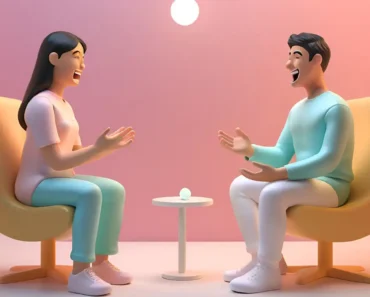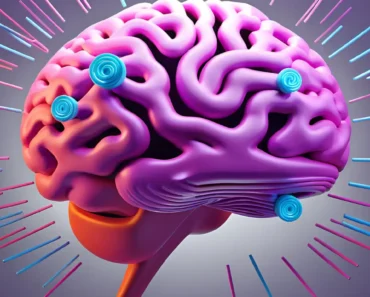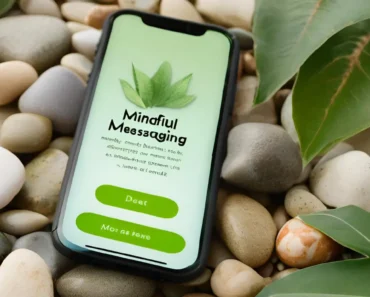Social media has reshaped communication, raising concerns about its impact on our ability to listen effectively. This guide explores whether Social Media Making Us Bad Listeners is a true phenomenon, delving into how digital habits influence our attention and empathy.
The Communication Revolution: Social Media’s Unintended Consequences
The advent of social media has fundamentally altered how we connect, share information, and perceive the world. Platforms like Facebook, Instagram, X (formerly Twitter), and TikTok offer instant access to vast networks. They facilitate rapid information exchange. While these tools boast immense benefits for connectivity, a growing concern emerges: is Social Media Making Us Bad Listeners? This question delves into the subtle, yet profound, ways digital habits reshape our attention spans and interpersonal dynamics.
Traditional listening, whether in a conversation or a classroom, demands focused attention, patience, and the ability to process information without immediate interruption. Social media, by design, often counteracts these qualities. It promotes brevity, constant stimulation, and a rapid-fire exchange of content. Users scroll through endless feeds, conditioned to consume information in bite-sized chunks and move on quickly if something fails to immediately capture their interest.
This constant digital environment trains our brains for quick hits of information and immediate gratification. It can inadvertently reduce our capacity for sustained attention and deep engagement required for effective listening. Understanding this shift is crucial for fostering healthier communication habits in a hyperconnected world. The pervasive nature of social media means its potential impact on our listening skills warrants careful examination.
How Social Media Training Contributes to Poor Listening Habits
Several inherent characteristics of social media platforms actively train our brains in ways that can hinder effective listening skills in real-world interactions. This provides insight into why Social Media Making Us Bad Listeners.
Constant Notifications and Attention Fragmentation
Social media platforms thrive on notifications. Every like, comment, share, or message creates a subtle “ding” or vibration, constantly pulling our attention. This trains our brains to be in a perpetual state of readiness for digital input. In real-world conversations, this translates into divided attention. We might be physically present but mentally distracted, anticipating the next digital interruption. This constant fragmentation of attention directly undermines active listening, which requires full, undivided focus. This is a primary reason why Social Media Making Us Bad Listeners.
Brevity and Impatience for Detail
Social media often favors brevity. Character limits, short video formats, and rapid-fire exchanges condition us for quick information consumption. If content does not immediately capture interest, users scroll on. This fosters impatience for detail and a preference for concise, often oversimplified, communication. In real conversations, this can lead to interrupting, finishing others’ sentences, or losing interest when discussions become complex or lengthy. The expectation of immediate gratification diminishes patience for nuanced listening.
“Broadcasting” vs. “Connecting”: A Shift in Purpose
Many social media interactions resemble “broadcasting” – sharing one’s own thoughts, opinions, or curated life moments – rather than genuine “connecting” through reciprocal listening and engagement. Users focus on crafting their own message, anticipating reactions, and accumulating likes. This shifts the internal focus from understanding others to self-presentation. When the primary goal becomes self-expression rather than active reception, listening skills naturally atrophy. This fundamental shift in purpose contributes to Social Media Making Us Bad Listeners.
Echo Chambers and Filter Bubbles: Limiting Exposure to Diverse Views
Social media algorithms often create “echo chambers” and “filter bubbles.” They show users content that aligns with their existing beliefs and preferences. This limits exposure to diverse viewpoints and challenging ideas. Over time, individuals may become less accustomed to listening to perspectives that differ from their own. This reduces intellectual empathy and the ability to engage constructively with opposing ideas. This environment inadvertently trains us to selectively listen, hindering genuine understanding.
The Impact: How Poor Listening Harms Relationships and Well-being
Beyond the digital sphere, compromised listening skills can have significant repercussions for our personal and professional relationships, as well as our overall mental health. The question of Social Media Making Us Bad Listeners extends to real-world consequences.
Strained Relationships and Misunderstandings
Poor listening directly leads to strained relationships. When partners, friends, or colleagues feel consistently unheard or misunderstood, resentment builds. Misinterpretations become common, leading to unnecessary arguments and emotional distance. The inability to truly connect on a deeper level erodes trust and intimacy. This breakdown in communication is a critical consequence when Social Media Making Us Bad Listeners.
Reduced Empathy and Emotional Connection
Effective listening is foundational to empathy. It allows us to understand and share the feelings of others. When attention is fragmented or impatience dominates, our capacity for empathy diminishes. This reduces the depth of emotional connection in relationships. The ability to offer genuine support or celebrate successes authentically suffers, leading to shallower bonds.
Decreased Problem-Solving and Collaboration
In professional settings, poor listening hinders effective problem-solving and collaboration. Misunderstandings lead to errors, inefficiencies, and conflicts within teams. Ideas are not fully grasped, and feedback is not accurately received. This impacts productivity and innovation. The inability to fully engage in active listening compromises collective efforts.
Strategies to Reclaim Your Listening Skills in the Digital Age
Reversing the trend of Social Media Making Us Bad Listeners requires conscious effort and intentional strategies. These practices help cultivate deeper attention and more empathetic interactions.
1. Implement Digital Detox Periods: Unplug and Recharge Your Brain
Consciously schedule periods of complete digital disconnection. This could be a few hours each day, a full day on weekends, or a vacation entirely free from screens. During these times, put away all devices. Engage in offline activities. This allows your brain to truly rest and recharge, improving its capacity for sustained attention. These detoxes directly counter the attention fragmentation caused by constant digital stimulation.
2. Create Tech-Free Zones: Sacred Spaces for Presence
Designate specific areas in your home or during social interactions as completely tech-free zones. The dining table, bedroom, or during conversations with loved ones are ideal candidates. This creates sacred spaces and moments for undivided attention and genuine interaction. Consistent adherence to these zones signals that these places prioritize human connection above all else. This physical boundary helps reduce constant digital pull.
3. Practice Mindful Device Use: Intentional Engagement
Cultivate awareness of your own digital habits. Before picking up your phone, pause and ask yourself why. Is it out of habit, boredom, or a genuine, urgent need? Set clear intentions for your screen use. For example, “I am checking this email for five minutes, then I will put it away.” This mindful approach helps reduce mindless scrolling and prioritizes real-world engagement. This personal discipline is fundamental for managing screen time effectively.
4. Engage in Active Listening Techniques: The Art of Hearing
Actively practice core listening techniques during conversations.
Maintain eye contact: This signals engagement and presence.
Put your phone away: Remove distractions completely.
Listen to understand, not to reply: Focus on absorbing their message.
Ask clarifying questions: “Can you tell me more about that?” or “What do you mean by that?”
Summarize what you heard: “So, if I understand correctly, you’re feeling…” This confirms understanding and makes the speaker feel heard.
These practices rebuild your capacity for deep engagement, directly addressing why Social Media Making Us Bad Listeners.
5. Seek Out Diverse Perspectives: Broaden Your Horizon
Actively consume content from diverse sources and viewpoints. Engage in respectful discussions with individuals who hold different opinions. This challenges the echo chambers of social media. It trains your brain to listen to and process alternative ideas. This intellectual exercise strengthens your ability to understand and empathize with perspectives beyond your own.
6. Practice Patience in Communication: Resist Instant Gratification
Recognize that not all communication needs to be instant. Resist the urge to reply immediately to every text or email. Allow for pauses in conversation. This trains your brain for patience and reduces the craving for constant digital stimulation. It helps you appreciate slower, more thoughtful interactions, which are conducive to better listening.
7. Consider Professional Support: Rebuilding Communication Skills
If you consistently struggle with attention, empathy, or communication challenges despite your best efforts, consider seeking professional support. A therapist or communication coach can provide tailored strategies, such as cognitive behavioral therapy (CBT), or specific exercises to address underlying issues. They offer guidance in developing healthier communication patterns and rebuilding interpersonal skills.
Read Also: Why Video Calls Exhaust Your Mental Energy
Budgeting for Better Listening: Investing in Your Connections
Investing in improved listening skills is a powerful investment in your relationships and overall well-being. Many effective strategies are free or low-cost, proving that personal growth is accessible to everyone.
Free Strategies: Leveraging Awareness and Discipline
Many powerful strategies for improving listening cost nothing. Practicing mindfulness about device use, setting personal boundaries, actively listening during conversations, and seeking out diverse perspectives are all free. These behavioral shifts are highly effective in strengthening your attention and empathy. They emphasize that your intentional effort is the most valuable investment. This directly addresses the concern of Social Media Making Us Bad Listeners.
Affordable Tools: Apps and Books for Support
Numerous apps offer features for digital well-being, screen time tracking, mindfulness exercises, or communication skill-building (some free, some subscription-based, usually under $10/month). Books on active listening, empathy, or digital wellness also provide valuable insights, often available from libraries or as affordable e-books. These tools support your efforts without significant expense.
Professional Support: A Worthwhile Investment
If communication difficulties or attention challenges severely impact your relationships or overall well-being, professional therapy or communication coaching is a worthwhile investment. Costs vary. Many professionals offer sliding scale fees. Health insurance often covers a portion of therapy costs. Online platforms can also be more affordable than in-person sessions (typically $60-$150/session). This investment provides personalized guidance for lasting change.
Caring for Your Listening Skills: Nurturing Attention
Maintaining strong listening skills requires ongoing self-awareness and consistent practice. Nurturing your ability to truly hear others is an investment in your relationships and overall mental wellness. This proactive care helps reverse the trend of Social Media Making Us Bad Listeners.
Regular Self-Assessment and Reflection
Periodically assess your own listening habits. During conversations, do you find your mind wandering? Do you interrupt often? Are you truly absorbing what others say? Reflect on past interactions. Identify areas for improvement. This regular self-assessment helps pinpoint communication pitfalls and allows for proactive adjustments to your approach.
Practice Mindfulness and Presence
Engage in mindfulness exercises to become more attuned to the present moment. This practice trains your brain to focus and reduces mental clutter. Cultivate presence during conversations by consciously bringing your attention to the speaker. This helps you be fully “there” and improves your capacity for active listening.
Seek Feedback from Trusted Individuals
Ask trusted friends, family members, or a partner for honest feedback on your listening skills. Inquire if they feel heard and understood by you. Constructive feedback provides valuable external perspective on your communication habits. Use this input to identify blind spots and make targeted improvements. This open dialogue reinforces your commitment to better listening.
Latest Innovations Supporting Enhanced Listening
The technology sector, while often a source of distraction, also offers innovative tools and features designed to support better listening and communication. These advancements help individuals enhance their interpersonal skills.
AI-Powered Communication Coaching Apps
Emerging AI tools offer personalized coaching for communication skills. These apps might analyze your speech patterns, provide feedback on active listening behaviors, or offer practice scenarios for difficult conversations. While not a substitute for human interaction, they provide a low-stakes environment to refine interpersonal skills. This can help individuals become more effective listeners.
Digital Well-being Features in Operating Systems
Smartphone operating systems now include advanced digital well-being features. These tools track screen time, allow users to set limits for specific apps, and schedule “downtime.” By providing data and control over digital consumption, they indirectly support better listening by reducing attention fragmentation and enabling more focused offline interactions.
Focus-Enhancing Wearable Technology
Some wearable technologies and apps aim to improve focus and reduce digital distractions during real-world interactions. They might provide subtle reminders to disengage from devices or offer haptic feedback to encourage present moment awareness. These innovations support individuals in cultivating sustained attention, which is fundamental to effective listening.
Making Your Final Decision: Cultivating the Art of Listening
The question “Is Social Media Making Us Bad Listeners?” highlights a crucial modern challenge. Reclaiming and enhancing your listening skills requires intentional effort, a commitment to mindful digital habits, and a deep appreciation for genuine human connection.
Prioritize establishing digital boundaries. Choose tech-free zones and times to create space for undivided attention. This foundational step helps your brain re-learn to focus.
Consider practicing active listening techniques in all your interactions. Maintain eye contact, listen to understand, and ask clarifying questions. These habits build stronger relationships.
Do not overlook the power of self-awareness and patience. Regularly assess your listening habits. Understand that improving attention takes time and consistent practice.
Remember, technology is a tool. When used thoughtfully and with a clear purpose, it can connect. When it dominates, it can disconnect. Mastering your listening skills ensures your relationships thrive, enriching your life with deeper understanding and empathy.
Reclaiming Your Attention: Mastering Listening in the Digital Age
The pervasive influence of social media prompts us to ask, “Is Social Media Making Us Bad Listeners?” By recognizing its impact and implementing conscious strategies, you can significantly enhance your ability to truly hear and connect with others.
Take time to reflect critically on your digital habits. Practice mindful device use. Remember that quality interaction and genuine presence are paramount for thriving relationships.
As you embark on this journey of improved listening, remain patient with yourself. Adapting ingrained behaviors takes consistent effort. Every deliberate step toward active listening strengthens your interpersonal bonds.
By thoughtfully applying these insights, you transform your communication style. You ensure your presence is felt. You cultivate deeper, more meaningful connections, enriching your life and countering the negative effects of digital distraction.
Frequently Asked Questions About Social Media Making Us Bad Listeners
Is Social Media Making Us Bad Listeners?
Social media can contribute to poor listening habits by training our brains for constant distraction, brevity, impatience, and a focus on broadcasting over connecting. This fragmented attention can make true active listening challenging.
What is “phubbing”?
Phubbing is the act of snubbing someone in a social setting by paying attention to one’s phone instead of them. It directly hinders active listening and makes the other person feel ignored or disrespected, eroding emotional connection.
How can I improve my active listening skills?
Improve active listening by putting your phone away during conversations, maintaining eye contact, listening to understand (not just to reply), asking clarifying questions, and summarizing what you heard to confirm understanding.
Should I take a digital detox to improve listening?
Yes, regular digital detoxes can be very effective. Stepping away from screens for periods helps reset your brain, improve its capacity for sustained attention, and reduce the constant digital alerts that fragment focus in real-world interactions.
Can technology help improve listening skills?
Yes, some technology can help. Digital well-being features on phones track screen time. Apps offer mindfulness exercises that improve focus. Emerging AI-powered communication coaching tools can provide practice scenarios to refine interpersonal listening skills.





